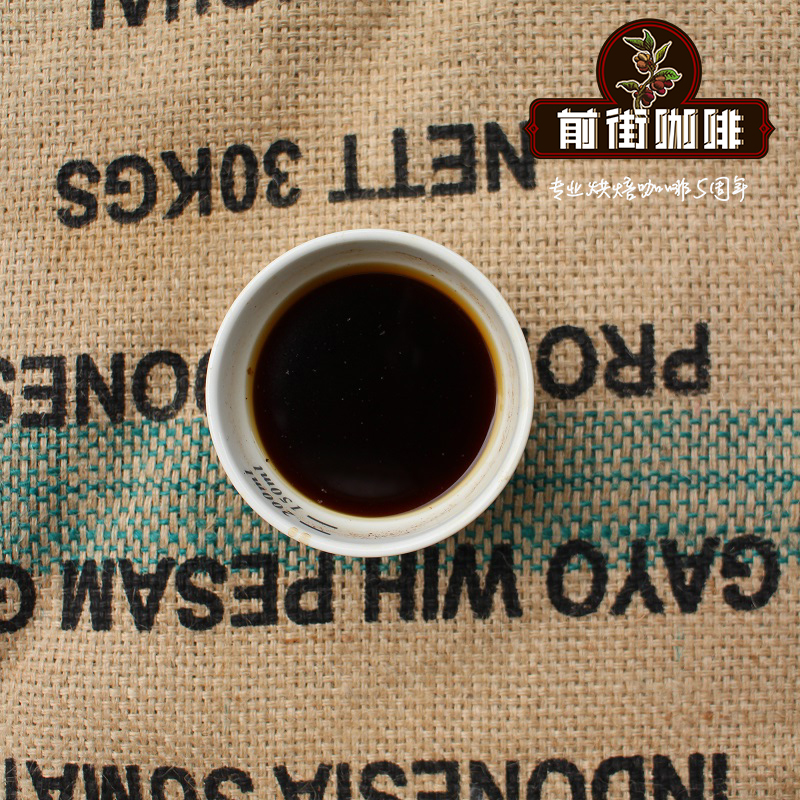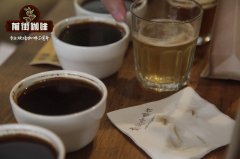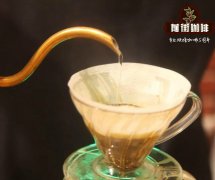The origin of Kopi Luwak will you still drink Kopi Luwak after its history? The living environment of civets

Professional coffee knowledge exchange more coffee bean information please follow the coffee workshop (Wechat official account cafe_style)
Civet Coffee (Kopi Luwak), also known as Kopi Luwak, is made by the civet who eats the coffee fruit and discharges the beans intact. People extract the beans from its feces and process them.
Produced in Indonesia, the coffee is currently one of the most expensive in the world, costing as much as a few hundred dollars per pound. The civet eats the ripe coffee fruit and excretes it through the digestive system. Due to the fermentation of the stomach, the coffee produced has a special taste and has become a hot product in the international market.
Muscat Coffee (Kopi Luwak), Kopi (Indonesian, coffee), Luwak refers to an arboreal wild animal called "civet" by Indonesians.
Kopi Luwak, produced in Indonesia, is one of the most expensive coffee in the world. Indonesia grows a lot of coffee crops, including wild animals called civets, omnivores, pointed mouths and dark gray fur. The favorite food is fresh coffee beans, which are fermented and digested in the body and eventually excreted by cats. Feces are grains of coffee beans and become the most expensive feces in the world. Because the quantity is very rare, so the price is very expensive. Civets are found in Indo-China, India (northeast), Bangladesh, Bhutan, Sikkim, Nepal and Kashmir, but only Sumatran civets, or Indonesian civets, can produce Kopi Luwak.
Musk cat droppings
After processing and baking, Kopi Luwak has become a luxury coffee drink and spread to luxury kingdoms around the world. Local coffee farmers, in pursuit of high profits, bring wild civets home to raise them so that they can produce more Kopi Luwak. However, the Kopi Luwak produced by breeding civets will be much worse in color and taste. Even so, the output of this kind of coffee is still very rare, and it is not affordable for all people who like coffee.
The coffee comes from the excrement of an animal called the civet (commonly known as the civet in Indonesia). Although it comes from smelly poop, it is full of sweetness and a burst of indescribable sweetness. This wild musk cat likes to eat fat and pulpy coffee fruits, but the hard hard nuts (raw beans) are indigestible and are excreted with feces. After being cleaned, they become Kopi Luwak coffee raw beans! So many people call it "cat shit" coffee. The Indonesians found that the coffee beans fermented by the civets' intestines and stomach are particularly thick and mellow, so they collect the civets' feces, sift out the coffee beans and brew them to drink. Because the yield is rare and the fermentation process is unique, the flavor is very different from that of ordinary coffee. Traditionally, coffee fruit is transparent.
After washing or sun treatment, the peel, pulp and sheep skin are removed, and finally the coffee beans are removed. However, Luwak uses the method of natural fermentation in the body to remove the coffee beans, so it has a special flavor.
It is said that coffee farmers in early Indonesia regarded civet cats that ate ripe coffee fruits as mortal enemies, but at some point someone began to think of picking coffee beans from the civet droppings to make coffee with unique flavor. Coffee experts everywhere have tried and were amazed. Since then, local farmers spend a lot of time collecting civet droppings in the forest every day during the coffee ripening season.
In the past, Kopi Luwak came from wild civets, all of which were picked up by Indonesians at 1.1 o'clock in the wild, so their output was a problem. Now, some smart people have come up with a way to raise civets in captivity. So this has solved several problems at once: higher production, less labor, and pipelining.
But how many people are concerned about the situation of these civets?
Although civets like coffee beans very much, they are omnivores, which means that civets will not eat coffee beans all the time unless they can only eat coffee beans. This is the real situation of these civets. Be locked up in a cage, eat coffee beans every day, but only let eat coffee beans, barely sustain life.
Musk cats are born to advocate freedom, so after living this kind of life, they are in a very irritable state every day, and they are also faced with very serious health problems. Look how these naturally lovely elves, these freedom-loving creatures, have been destroyed!
END
Important Notice :
前街咖啡 FrontStreet Coffee has moved to new addredd:
FrontStreet Coffee Address: 315,Donghua East Road,GuangZhou
Tel:020 38364473
- Prev

Coffee cup testing science 36 flavors, taste buds, smell, brain association and comparison training tips
Professional coffee knowledge exchange more coffee bean information Please pay attention to the coffee workshop (Wechat official account cafe_style) cup test is a quality coffee only have a standard, almost after the 1990s to form a more mature coffee cup test standard. When it comes to cup testing, we have to mention coffee roasting again, because in the past, people in Europe and the United States drank coffee, especially in the 1960s.
- Next

White coffee is not white. Black coffee is sweet anyway. What's the difference between black coffee and white coffee?
Professional coffee knowledge exchange more coffee bean information Please pay attention to Coffee Workshop (Wechat official account cafe_style) White coffee is a native product of Malaysia with a history of more than 100 years. White coffee does not mean that the color of the coffee is white, but the use of premium Liberia (Liberia), Arabica (Arabica) and Robusta (Robusta) coffee beans and special
Related
- How did the Salvadoran coffee industry develop in Central America?
- What exactly does the golden cup extraction of coffee mean?
- The Origin of Coffee flower
- [2023 Starbucks World Earth Day] there are more meaningful things besides free Starbucks coffee!
- What kind of coffee is there in Spain? 9 Flavors of Spanish Coffee
- Aromatic African coffee| Kenya's coffee culture and historical production area
- Liberica Coffee Bean knowledge: the characteristics of Liberian Coffee beans of the three original species of Coffee beans
- The origin and formula of Spanish latte introduces the taste characteristics of Bombon coffee in Valencia, Spain.
- How to adjust the solution of over-extracted coffee
- What is the tasting period of coffee beans? What is the period of coffee and beans? How should coffee wake up and raise beans?

